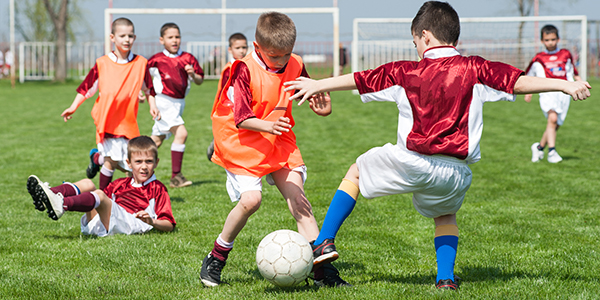
How to Support Your Sports Kid
In my work as a mental game coach, I often focus on the mental training challenges of athlete, coach, or team. However, many mental game experts leave out a very important group — sports parents. Parents are critical to an athlete’s mental game development and success in sports.
I often work very closely with my students’ parents when I do one-on-one mental coaching with junior or young athletes. Getting parents to reinforce the principles of sports psychology helps my students adopt and commit to mental toughness training.
When parents are knowledgeable about “mental game” strategies, young athletes can learn faster. I certainly don’t want parents to tell their young athletes the opposite of what we strive to achieve. In addition, parents can sometimes be the source of pressure and expectation a young athlete feels and they need to understand how this might happen.
Your Role as a Sport Parent
So my conclusion is that parents need to understand sports psychology! Let’s look closer at this issue…
Parents can, without knowing it, sometimes impede the mental coaching process with my students. Even though they have the best intentions and are trying to be helpful, they might undermine an athlete’s confidence.
From our experience, we find that parents’ expectations for kids can be perceived as pressure by young athletes. You might impose your own high expectations for success on your sports kids. You might even think your high expectations actually boost your children’s confidence.
For example, when working with my personal coaching students, I try to help both parents and athletes understand that instilling high or strict expectations limit kids’ performance. Expectations often don’t build confidence! In fact, just the opposite…
Confidence leads athletes into the winner’s circle. Expectations lead athletes to frustration when they are not performing up to their self-imposed ideals. One of my formulas for success in sports is having high confidence void of judgmental expectations.
When working with students, I teach parents and their athletes the difference between these concepts and help them identify expectations that hurt their kid’s performance — and sometimes undermine their confidence.
In your efforts to be supportive (and boost child’s confidence), you might say things that kids then can interpret as expectations. Expectations then turn into pressure for kids — pressure to match parental expectations. Here’s a golf example. A parent, with good intentions, may say to a child, “You should be able to shoot even par on this course today — you have done it before.”
Sounds supportive and seems on the surface what a positive parent might say, right? However, I have a different take on this. Young golfers interpret these statements in ways parents don’t often realize. In many cases, a child thinks he should shoot even par and if he doesn’t, he’s letting down his parents because the parent has set the expectation or score for the day.
For some parents, this may seem controversial because of what they know or have been taught about positive expectations. But this is how the mind of the young athlete works in this example. High expectations a child internalizes from a parent, causes a golfer to become more conscious about his score for the day.
I don’t want my students to think score or what they SHOULD shoot. I prefer my students to focus on one shot or play at a time, not the score. Score is only relevant at the end of the round or game, but has noting to do with performing in the moment.
Here, I give you just one example of why parents need mental training too… Sports parents need to be educated about the mental game lessons that I teach my students so at the least we are on the same page. I don’t want to teach my students conflicting messages. Kids’ Sports Psychology is an excellent resource to help parents, coaches, and kids improve mental game skills.
Related Sports Psychology Articles
- How These Sports Parents Support Their Division I Athletes
- Self-Criticism In Youth Athletes
- Helping Kids Choose Sports
*Subscribe to The Ultimate Sports Parent Podcast
*Subscribe to Peak Performance Sports on Youtube
Download a free sports psychology report to improve your mental game!
Sports Psychology Coaching for Young Athletes

One-on-one mental performance coaching is the fastest and most effective method to improve your athletes’ mental game, boost their performance, and make lasting changes. And as a bonus, parents learn what to say to help young athletes feel confident and thrive in sports. Please call us at 888-742-7225 with your questions.
